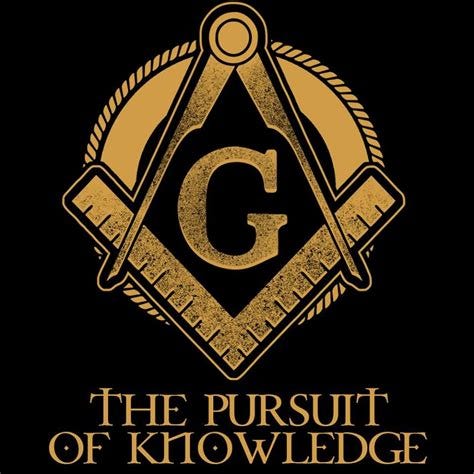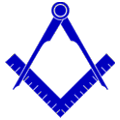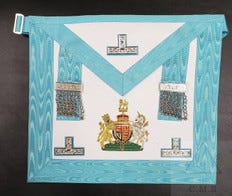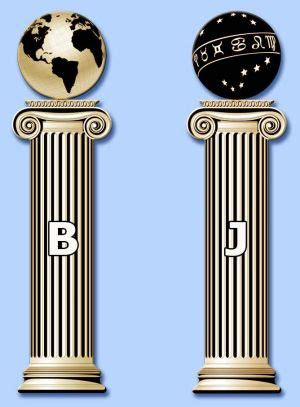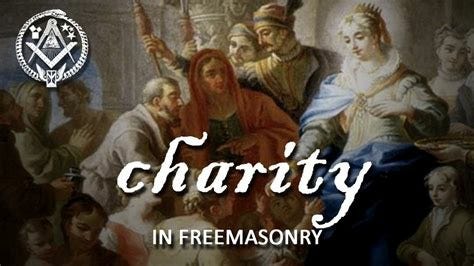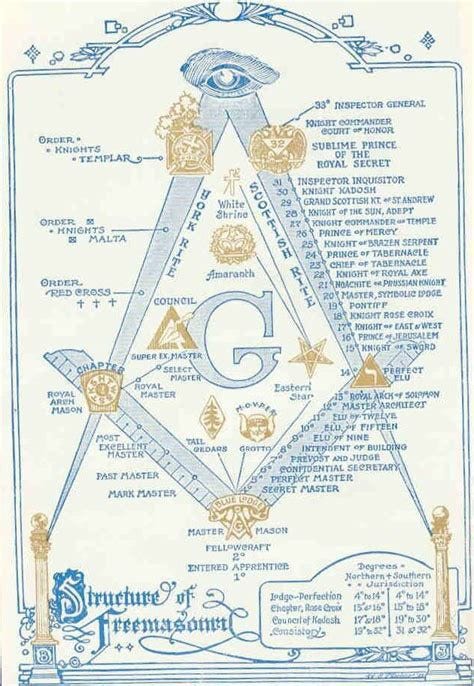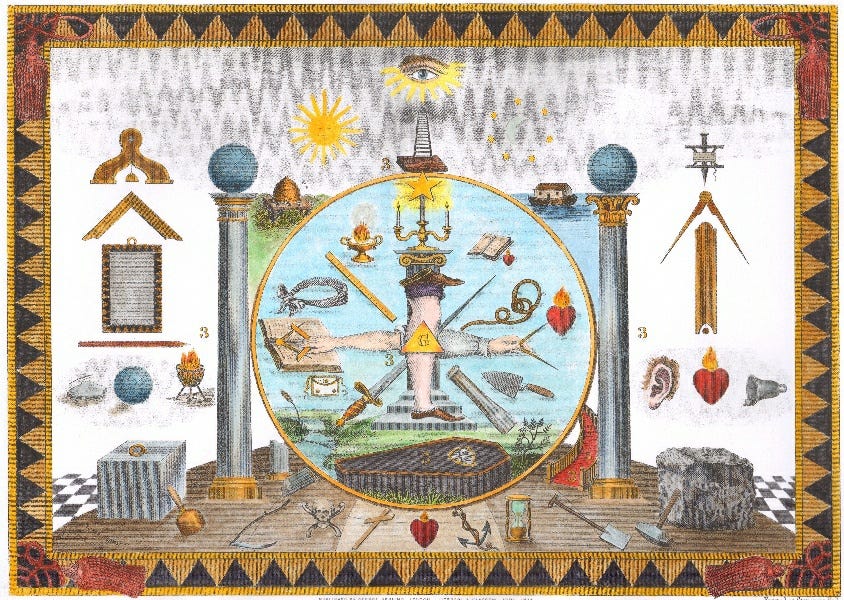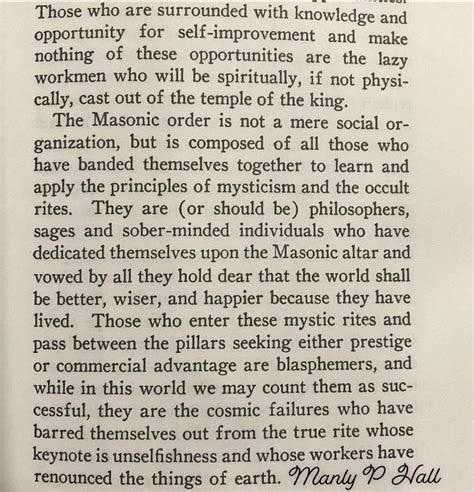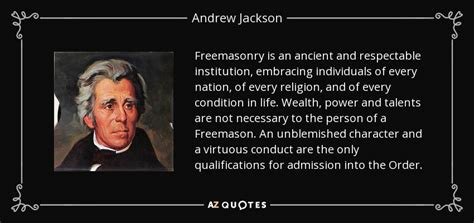Introduction:
In the annals of history, few organizations have been shrouded in as much intrigue and misconceptions as Freemasonry. The very mention of its name can conjure up images of hidden agendas, secret societies, and whispered conspiracies. Yet, beneath the veils of speculation and sensationalism lies a tradition that is far from nefarious. Freemasonry is, in fact, a noble and time-honored endeavor, rich with symbolism, principles, and a profound commitment to bettering both its members and society at large.
In this essay, we embark on a journey to unveil the truths about Freemasonry, exploring its history, principles, and the impact it has had on personal growth, ethical conduct, and philanthropy. Along the way, we will navigate the labyrinthine paths of symbolism, delve into the degrees that constitute its inner workings, and illuminate the grand tapestry of ideals that define its essence.
But why, you might wonder, is the dispelling of myths and misconceptions about Freemasonry so vital? It is because, in an age rife with unfounded beliefs and conspiracy theories, it is imperative to distinguish between fact and fiction. The rumors of an infiltration by a group calling themselves the "Illuminati" in 1776 have sparked intrigue, yet my studies reveal that Freemasonry stands as a beacon of honor and nobility, a far cry from the shadows in which such rumors thrive.
To begin this journey, we turn to one of the most iconic symbols in Freemasonry, the All-Seeing Eye, which silently watches over the fraternity's teachings. As we explore its symbolism and delve into the heart of Freemasonry, we will uncover the profound truths it holds, and hopefully, dispel the myths that have clouded its noble purpose for far too long.
Join me as we unveil the secrets, illuminate the symbols, and ultimately reveal the honorable path of Freemasonry—a journey into the heart of an age-old tradition committed to brotherly love, moral development, and philanthropy.
Freemasonry, as a longstanding fraternal organization, encompasses a rich tapestry of symbolism, principles, and rituals that promote brotherly love, moral development, and philanthropy. By exploring its symbolism, degrees, and historical context, we can gain a deeper understanding of the profound impact Freemasonry has had on personal growth, ethical conduct, and the betterment of society.
The Scottish Rite's 33rd degree, is an honorary degree conferred upon Freemasons who have shown exceptional dedication and service to the craft.
Here are some key points of the general principles and ideas associated with Freemasonry:
Symbolism:
Freemasonry employs symbolism to convey moral and ethical lessons. Symbols like the square and compass, the apron, and the pillars represent various virtues and principles.
Brotherly Love:
Freemasonry emphasizes the importance of brotherly love, tolerance, and respect for others. It promotes unity among its members regardless of their background, religion, or social status.
Morality and Ethics:
Freemasonry encourages its members to uphold high moral and ethical standards, promoting personal growth and character development.
Charity and Philanthropy:
Freemasons are involved in charitable activities and often contribute to their communities through various philanthropic endeavors.
Rituals and Ceremonies:
Freemasonry incorporates ritualistic practices and ceremonies to impart moral lessons and create a sense of shared experience among its members.
Degrees:
Freemasonry has a hierarchical structure comprising various degrees, each with its own teachings and lessons. The Scottish Rite's 33rd degree is an honorary degree, awarded to those who have demonstrated exceptional commitment to the fraternity.
Enlightenment Ideals:
Freemasonry's roots can be traced back to the Enlightenment era, and it espouses ideals such as liberty, equality, and personal freedom.
Secrecy and Privacy:
Freemasonry historically embraced secrecy regarding its internal ceremonies and modes of recognition. However, in modern times, there is greater openness, and much of the formerly secretive information is available to the public.
Esoteric Knowledge:
Freemasonry incorporates symbols, allegories, and teachings drawn from various sources, including ancient mystery traditions, religious texts, and philosophical systems.
Self-Improvement:
Freemasonry encourages members to work on self-improvement, striving to become better individuals, morally and ethically.
These points provide a broad overview of Freemasonry and the Scottish Rite's 33rd degree. Freemasonry incorporates elements from various religious and philosophical traditions, and Christianity is one of them. Freemasonry is not a religion itself and does not require its members to adhere to any specific religious belief.
One of the fundamental principles of Freemasonry is the belief in a Supreme Being or a higher power. This belief serves as a unifying force among Freemasons, regardless of their specific religious affiliations. Freemasonry encourages its members to uphold their religious beliefs and actively participate in their respective religious communities.
Christianity, being a major religious tradition, has had an influence on the symbolism and teachings within Freemasonry. For example, the Bible is often considered one of the Great Lights of Freemasonry, alongside the square and compass. Certain rituals and ceremonies may also incorporate Christian symbolism and references.
However, it is essential to recognize that Freemasonry is inclusive and embraces individuals from diverse religious backgrounds. It promotes tolerance and respect for all religious beliefs and encourages members to find common ground through shared moral values.
It is worth mentioning that the interpretation of Freemasonry's religious aspects can vary among different Masonic jurisdictions and individual lodges. Therefore, understanding the specific context and beliefs of a particular Masonic organization or lodge is crucial to grasp the nuances of their teachings.
To delve further into the symbolism and principles of Freemasonry, I invite you to watch an insightful video titled
'Scottish Rite: The Masonic Journey Continues.'
This video provides a visual journey into the world of Freemasonry and how it champions brotherly love, moral development, and philanthropy.
Symbolism plays a significant role in Freemasonry. Some commonly recognized symbols and their associated meanings within Freemasonry:
Square and Compass:
The square represents morality and virtue, reminding Freemasons to act with fairness and integrity. The compass symbolizes self-control and balance, guiding members to keep their desires and passions within due bounds.
Apron:
The apron is one of the most recognizable symbols in Freemasonry. It represents purity and reminds members of their duty to lead a moral life. The specific design and decorations on the apron may vary based on the degree or rank of the Freemason.
Pillars:
The pillars, often depicted as two columns named Jachin and Boaz, symbolize strength and establishment. They are associated with the Temple of Solomon and represent the duality of nature and the balance between opposing forces.
All-Seeing Eye:
The All-Seeing Eye, often depicted within a triangle, represents the watchful eye of the Divine or the Great Architect of the Universe. It symbolizes the idea that a higher power is aware of our actions and holds us accountable.
Trowel:
The trowel is a symbol of unity and brotherhood. It represents the spreading of the cement of brotherly love and serves as a reminder to work together in harmony.
Gavel:
The gavel symbolizes authority and the power to govern oneself. It represents the ability to control one's actions, make wise decisions, and maintain order.
Level and Plumb:
The level represents equality among Freemasons, reminding them that, regardless of their social or economic status, all are equal within the lodge. The plumb represents upright conduct and moral rectitude.
These symbols, along with many others, are used to convey moral, ethical, and philosophical lessons within Freemasonry. They serve as visual reminders of the principles and values that Freemasons strive to uphold.
Brotherly Love is a central principle in Freemasonry.
Universal Brotherhood: Freemasonry promotes the idea of universal brotherhood, emphasizing that all Masons are part of a worldwide fraternity. It encourages members to view each other as brothers and to extend fraternal love, care, and support.
Tolerance and Acceptance: Freemasonry encourages tolerance and acceptance of others, irrespective of their differences in religion, race, nationality, or social background. It teaches that unity can be achieved by focusing on shared values rather than dwelling on divisions.
Mutual Assistance and Support: Freemasonry fosters a spirit of mutual assistance and support among its members. This can take various forms, including providing aid to fellow Masons and their families in times of need, offering mentorship to younger members, and assisting in charitable endeavors.
Respect for Individual Beliefs: Freemasonry places importance on respecting the individual beliefs and convictions of its members. It does not promote any specific religious doctrine or require adherence to a particular faith. Instead, it encourages members to practice their own religion and develop a personal relationship with their chosen higher power.
Unity in Diversity: Freemasonry embraces the diversity of its members and views it as a source of strength. Lodges often consist of individuals from various professions, backgrounds, and walks of life, fostering an environment of shared learning and growth.
By emphasizing brotherly love, It encourages its members to demonstrate compassion, kindness, and understanding not only to fellow Masons but also to society at large.
Morality and Ethics are integral to Freemasonry.

Moral Guidance: Freemasonry provides its members with moral guidance and principles to help shape their behavior and actions. It teaches the importance of practicing virtues such as honesty, integrity, justice, and charity.
Self-Improvement: Freemasonry encourages personal growth and character development. Through self-reflection and the application of moral teachings, members strive to become better individuals and contribute positively to their communities.
Virtues and Lessons: Freemasonry uses symbolism, rituals, and allegorical teachings to impart moral lessons. These lessons often draw from ancient wisdom traditions and philosophical systems, offering guidance on living a virtuous and honorable life.
Integrity and Accountability: Freemasonry emphasizes the value of integrity and accountability. Members are expected to uphold their obligations and commitments, act with honor and honesty, and take responsibility for their actions.
Service to Others: Freemasonry promotes the idea of service to others and encourages members to engage in acts of charity and philanthropy. It emphasizes the importance of using one's resources and abilities to benefit those in need and contribute to the welfare of society.
Ethical Conduct in Society: Freemasons are encouraged to be exemplary citizens, upholding moral and ethical standards not only within the fraternity but also in their daily lives. They are expected to be law-abiding, respectful, and conscientious members of society.
By focusing on morality and ethics, Freemasonry aims to foster a sense of personal responsibility, integrity, and compassion among its members. It strives to create a community of individuals who are committed to living virtuously and making a positive impact on the world around them.
Charity and Philanthropy are important aspects of Freemasonry.
Charitable Initiatives: Freemasonry has a long-standing tradition of engaging in charitable activities. Masonic organizations and lodges often establish charitable foundations or funds to support a wide range of causes, including education, healthcare, disaster relief, and community development.
Relief for Members: Freemasonry places importance on providing support and assistance to its members and their families in times of need. This can include financial aid, medical assistance, educational scholarships, and other forms of relief.
Community Engagement: Freemasons actively participate in their communities and strive to make a positive impact. They engage in volunteer work, collaborate with local organizations, and contribute to community development initiatives.
Masonic Homes and Care: Some Masonic jurisdictions operate homes, care facilities, or retirement communities for elderly members or those in need of specialized care. These facilities provide housing, healthcare, and support services.
Masonic Youth Organizations: Freemasonry often sponsors youth organizations, such as the Order of DeMolay for young men and the International Order of the Rainbow for Girls. These organizations focus on character development, leadership training, and community service.
Scholarships and Education: Freemasonry frequently awards scholarships and grants to deserving individuals pursuing education or vocational training. This reflects the commitment to fostering knowledge and supporting individuals in their educational endeavors.
The charitable and philanthropic activities of Freemasonry stem from the principles of brotherly love, compassion, and helping those in need. By engaging in these endeavors, Freemasons aim to contribute to the betterment of society and make a positive difference in the lives of individuals and communities.
Rituals and Ceremonies are integral to the practice of Freemasonry.
Symbolic Rituals: Freemasonry employs symbolic rituals to convey moral, philosophical, and spiritual teachings. These rituals often involve dramatic reenactments, allegorical storytelling, and symbolic gestures.
Initiation Ceremonies: The initiation ceremonies, also known as "degrees," mark significant milestones in a Mason's journey. These ceremonies involve symbolic rituals, which vary in content and complexity depending on the Masonic jurisdiction and degree.
Lessons and Moral Teachings: Each degree within Freemasonry's system of degrees has its own set of lessons and teachings. These lessons are conveyed through the rituals and ceremonies, helping Masons reflect on important values, principles, and virtues.
Secrecy and Esotericism: Freemasonry historically embraced a degree of secrecy regarding its rituals and ceremonies. While much of this information is now publicly available, the experience of participating in the rituals and ceremonies is still considered a meaningful and private experience for Masons.
Shared Brotherhood: The rituals and ceremonies of Freemasonry create a sense of shared experience and brotherhood among its members. By going through these rituals together, Masons develop bonds of trust, mutual support, and camaraderie.
Continuity and Tradition: Freemasonry places great value on maintaining the continuity of its rituals and ceremonies over time. This emphasis on tradition and preserving ancient practices contributes to the sense of connection with past generations of Masons.
The rituals and ceremonies of Freemasonry are intended to inspire self-reflection, foster moral growth, and create a sense of unity and shared purpose among its members. They provide a unique and meaningful experience that contributes to the fraternity's rich history and tradition.
Degrees in freemasonry have a hierarchical structure consisting of different degrees.
Blue Lodge Degrees: The foundational degrees in Freemasonry are often referred to as the "Blue Lodge" degrees. These typically consist of three degrees: Entered Apprentice, Fellowcraft, and Master Mason. These degrees focus on moral lessons, personal development, and the symbolism of the craft.
Additional Degrees: Beyond the Blue Lodge degrees, there are additional degrees that expand upon the teachings and principles of Freemasonry. These degrees vary among different Masonic jurisdictions and appendant bodies.
Scottish Rite Degrees: One notable appendant body within Freemasonry is the Scottish Rite, which offers a series of degrees beyond the Blue Lodge degrees. The Scottish Rite has 33 degrees, with the 33rd degree being an honorary degree. It is bestowed upon Masons who have shown exceptional dedication, service, and commitment to the fraternity.
York Rite Degrees: Another appendant body in Freemasonry is the York Rite, which offers additional degrees beyond the Blue Lodge degrees. The York Rite comprises three main bodies: the Chapter of Royal Arch Masons, the Council of Royal and Select Masters, and the Commandery of Knights Templar.
Shriner Degrees: The Ancient Arabic Order of the Nobles of the Mystic Shrine, commonly known as the Shriners, is another Masonic appendant body. Shriners focus on philanthropy, particularly in the field of pediatric healthcare. While not degrees in the traditional sense, the Shriners have their own unique ceremonial rituals and traditions.
It's important to note that the degrees in Freemasonry are not seen as a measure of superiority or rank, but rather as a progressive system of teachings, allegories, and lessons. Each degree offers its own set of moral, philosophical, and symbolic insights, allowing Freemasons to deepen their understanding of the craft and continue their personal and spiritual development.
Enlightenment
Freemasonry has historical connections to the Enlightenment era and embraces certain ideals associated with that period.

Intellectual and Philosophical Influence: Freemasonry emerged during the 17th and 18th centuries, a time characterized by intellectual curiosity, scientific progress, and the spread of Enlightenment ideas. Many of the founders and influential figures of Freemasonry were themselves influenced by the Enlightenment philosophers and their ideals.
Liberty and Individual Freedom: Freemasonry promotes the principles of liberty and individual freedom. It upholds the idea that every person should be free to pursue their own beliefs, thoughts, and aspirations without undue interference.
Equality and Universal Brotherhood: Freemasonry emphasizes equality among its members. Regardless of their social status, occupation, or background, all Freemasons are regarded as equals within the lodge. This notion of equality extends to the broader concept of universal brotherhood, where Freemasonry promotes unity and fellowship among all humanity.
Rationality and Enlightenment: Freemasonry encourages its members to seek knowledge, explore intellectual pursuits, and engage in rational discourse. It values critical thinking, open-mindedness, and the pursuit of truth.
Moral and Ethical Enlightenment: Freemasonry aims to enlighten its members morally and ethically. Through its teachings, symbolism, and rituals, Freemasonry encourages self-improvement, personal growth, and the cultivation of virtues and ethical conduct.
While Freemasonry's connection to the Enlightenment era and its ideals is acknowledged, it is important to recognize that Freemasonry is a diverse and multifaceted organization with various interpretations and expressions. The influence of Enlightenment ideals may vary among different Masonic jurisdictions and individual lodges.
Secrecy and Privacy have been notable aspects of Freemasonry throughout its history.
Historical Secrecy: Freemasonry has traditionally maintained a degree of secrecy regarding its rituals, ceremonies, and modes of recognition. This practice was intended to preserve the symbolic and experiential aspects of the fraternity and to foster a sense of exclusivity among its members.
Modes of Recognition: Freemasons historically used various modes of recognition, including handshakes, passwords, and symbols, to identify one another and distinguish themselves as members of the fraternity.
Symbolic Secrets: Much of the secrecy in Freemasonry pertains to the symbolic teachings and allegorical interpretations that are shared within the fraternity. These symbolic secrets were meant to be experienced firsthand by initiates during rituals and ceremonies.
Modern Transparency: In recent times, there has been a shift towards greater transparency and openness within Freemasonry. Many Masonic organizations have made efforts to share information about their history, rituals, and philosophy with the public. Numerous books, articles, and online resources are now available to those who wish to learn about Freemasonry.
Public Events and Engagement: Freemasonry frequently organizes public events, open houses, and public lectures to provide insights into the fraternity's values, philanthropic activities, and community engagement. These initiatives aim to dispel misconceptions and foster understanding between Freemasons and the wider public.
While recognizing that secrecy has historically played a significant role in Freemasonry, it's vital to acknowledge the contemporary approach that emphasizes transparency, openness, and a genuine willingness to share knowledge and information with those who express an interest. However, it's important to note that specific rituals, ceremonies, and some modes of recognition remain private and reserved exclusively for members of the fraternity.
For a more in-depth exploration of the topic, consider reading this comprehensive article from Time: Freemasonry's Historical Secrecy and Modern Transparency.
This article provides valuable insights into the historical context and evolving perspectives on secrecy within Freemasonry.
Esoteric
Freemasonry incorporates esoteric knowledge by drawing upon symbols, allegories, and teachings from diverse sources.
Ancient Mystery Traditions: Freemasonry has been influenced by ancient mystery traditions, such as those practiced in Egypt, Greece, and other ancient civilizations. These traditions often conveyed spiritual and philosophical teachings through symbolic rituals and ceremonies.
Religious Texts: Freemasonry incorporates elements from religious texts, such as the Bible, Quran, Torah, and other sacred texts. These texts are used symbolically to convey moral and ethical teachings and inspire contemplation.
Philosophical Systems: Freemasonry encompasses philosophical concepts from various systems, including Hermeticism, Neoplatonism, Stoicism, and Enlightenment philosophy. These systems provide a framework for understanding the nature of reality, the human condition, and moral principles.
Symbolic Language: Symbols play a crucial role in Freemasonry, representing abstract ideas and concepts. These symbols are drawn from ancient, religious, and philosophical sources and are used to communicate deeper truths and teachings to initiates.
Allegorical Lessons: Freemasonry employs allegory, using symbolic narratives and stories to convey moral and philosophical lessons. These allegorical teachings often explore themes such as personal growth, virtue, the search for truth, and the nature of the Divine.
Numerology and Geometry: Freemasonry incorporates numerological and geometric symbolism. Numerology assigns significance to numbers, while geometric shapes like squares, circles, and triangles represent concepts such as stability, unity, and harmony.
Freemasonry's use of esoteric knowledge serves as a means to convey profound teachings, stimulate personal reflection, and encourage philosophical exploration. It aims to inspire members to deepen their understanding of themselves, their place in the world, and their moral obligations to society.
Self-improvement is a core principle in Freemasonry.
Moral and Ethical Development: Freemasonry emphasizes the importance of moral and ethical growth. Through the study of Masonic teachings, engagement in ritualistic practices, and reflection on symbolic lessons, members are encouraged to cultivate virtues, such as integrity, honesty, kindness, and compassion.
Personal Responsibility: Freemasonry instills a sense of personal responsibility in its members. It encourages individuals to take ownership of their thoughts, actions, and decisions, recognizing that each person has the ability to shape their character and contribute positively to society.
Continued Learning: Freemasonry promotes a commitment to lifelong learning and intellectual growth. It encourages members to expand their knowledge, explore diverse subjects, and engage in intellectual pursuits that foster personal development.
Fraternal Support and Mentorship: Within the Masonic fraternity, members often find support and guidance from their fellow brothers. Masonic lodges provide a supportive environment where mentorship, shared experiences, and constructive feedback can aid in personal growth and self-improvement.
Service to Others: Freemasonry emphasizes the importance of service to others. Through acts of charity, philanthropy, and volunteerism, members are encouraged to make a positive impact on their communities and extend their values beyond the confines of the lodge.
Reflection and Contemplation: Freemasonry provides opportunities for reflection and contemplation. Rituals, ceremonies, and moments of quiet introspection offer members a chance to evaluate their actions, assess their progress, and set goals for personal improvement.
By fostering a commitment to self-improvement, Freemasonry aims to inspire individuals to lead virtuous and meaningful lives, constantly striving to enhance their character, deepen their understanding, and contribute to the betterment of society.
In conclusion, Freemasonry is a centuries-old fraternal organization that encompasses a rich tapestry of principles, symbolism, rituals, and degrees. Throughout its history, Freemasonry has embraced symbolism to convey moral and ethical teachings, promoting brotherly love, unity, and respect for others. It encourages its members to strive for personal growth, upholding high moral and ethical standards, while actively engaging in charitable activities and philanthropic endeavors to benefit their communities.
Freemasonry's degrees, including the honorary 33rd degree of the Scottish Rite, provide a progressive system of teachings and lessons, fostering self-improvement and character development. With historical connections to the Enlightenment era, Freemasonry espouses ideals of liberty, equality, and personal freedom, encouraging intellectual curiosity, rational discourse, and the pursuit of knowledge.
While Freemasonry incorporates symbols, allegories, and teachings from various religious and philosophical traditions, including Christianity, it is inclusive and embraces individuals from diverse religious backgrounds. Freemasonry's emphasis on a belief in a Supreme Being or higher power serves as a unifying force among its members, irrespective of specific religious affiliations.
The practice of Freemasonry historically embraced secrecy regarding its rituals and modes of recognition. However, in contemporary times, there is a greater openness, with many Masonic organizations sharing information about their history, rituals, and philosophy with the public. Freemasonry strives to balance its commitment to preserving ancient traditions with the desire for transparency and engagement with the wider community.
Freemasonry's incorporation of esoteric knowledge, its emphasis on self-improvement, and its commitment to charity and philanthropy contribute to its enduring relevance. By promoting moral and ethical principles, fostering personal growth, and engaging in acts of service, Freemasonry inspires its members to lead virtuous lives and make positive contributions to society.
Freemasonry stands as a multifaceted institution that has left an indelible mark on history, philosophy, and philanthropy. Its enduring principles, symbolisms, and teachings continue to resonate with individuals seeking personal growth, enlightenment, and a sense of belonging to a global community united by shared values and a commitment to brotherly love.
To further explore the symbolism and principles of Freemasonry, I invite you to watch this insightful video titled
'Freemasonry: Wisdom Through the Ages.'
This video provides a visual journey into the world of Freemasonry and how it champions brotherly love, moral development, and philanthropy.





